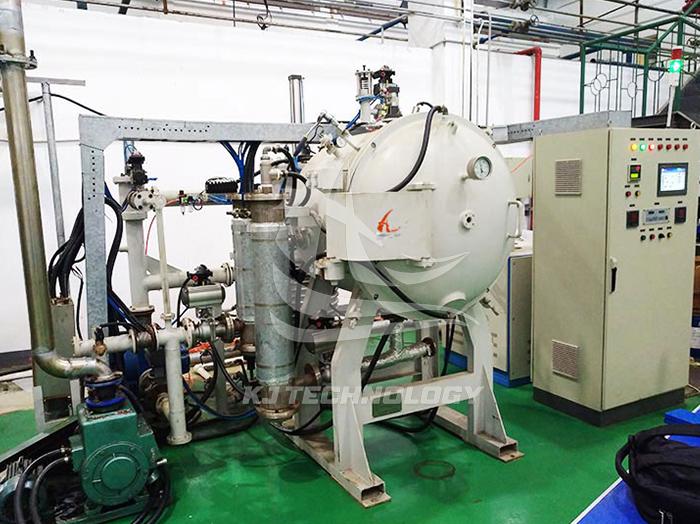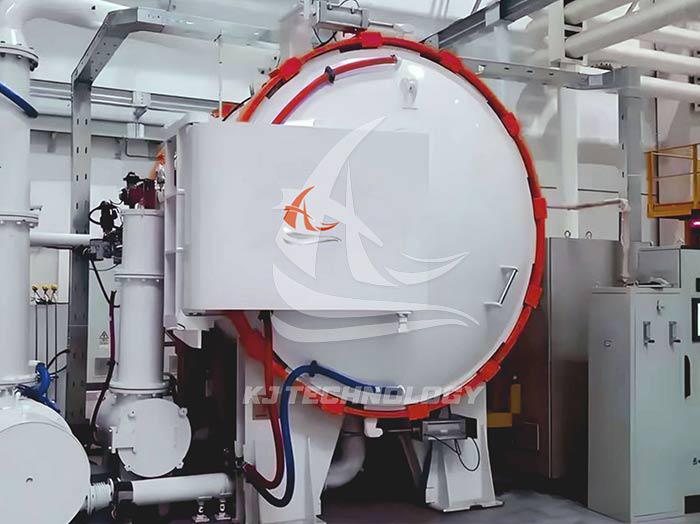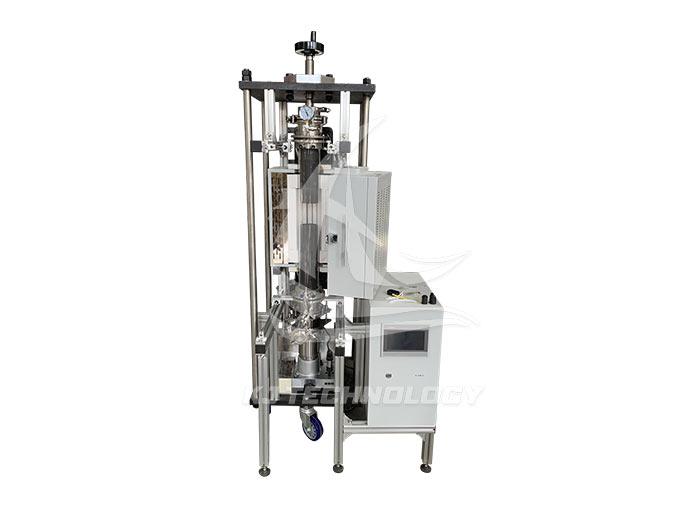Customized ceramic sintering vacuum furnace cannot be evacuated
 08-28-2025 Author: KJ technology
08-28-2025 Author: KJ technology
Customized ceramic sintering vacuum furnaces may not be able to vacuum up due to various reasons. The following is a detailed analysis and corresponding troubleshooting methods:
1. Vacuum system issues
Pump oil pollution, insufficient or too thin
Possible reasons: Poor quality of pump oil or prolonged non replacement, resulting in poor or damaged operation of the vacuum pump.
Exclusion method: Clean the vacuum pump and replace it with new vacuum pump oil.
Vacuum pump overheating or component expansion
Possible reasons: Long term operation or poor heat dissipation of the vacuum pump may cause the components to expand and the gap to be too small.
Exclusion method: Strengthen the cooling of the pump to ensure that the vacuum pump operates at a suitable temperature.
Aging, corrosion or damage of seals
Possible reasons: Prolonged use or contact with corrosive substances can cause aging, corrosion, or damage to the seals.
Exclusion method: Check and replace aging and broken seals, such as solenoid valves, pipe joints, vacuum pump suction valves, and sealing gaskets around the working chamber.
Loose or leaking pipeline connections
Possible reasons: The pipeline connection is not tightened or there are air leakage points.
Exclusion method: Check the pipeline connections to ensure good sealing; Use a helium mass spectrometer leak detector to detect and repair leakage points.
Exhaust filter clogged
Possible cause: The exhaust filter has been used for a long time or not cleaned in a timely manner, resulting in blockage.
Exclusion method: Clean or replace the exhaust filter.
The O-ring of the suction valve has come off
Possible cause: The O-ring of the suction valve may come off due to vibration or aging.
Exclusion method: Remove the vacuum tube from the pump nozzle, remove the suction nozzle, take out the compression spring and suction valve, gently stretch the O-ring several times, re insert it into the groove, and then install it.
The return valve is blocked
Possible reason: The return valve is blocked due to oil stains or impurities.
Exclusion method: Remove the return valve and clean it.
2. Operation and setting issues
Insufficient pumping time
Possible reason: The pumping time was set too short and did not reach the required vacuum level.
Exclusion method: Extend the pumping time to ensure that the vacuum degree meets the requirements.
Insufficient vacuum source or compressed air pressure
Possible reasons: Insufficient vacuum source pressure or compressed air pressure below the normal operating range (0.4-0.6 MPa).
Exclusion method: Confirm whether the vacuum gas source is normal and whether the compressed air pressure meets the working requirements.
Vacuum gauge malfunction
Possible cause: The vacuum gauge is damaged or displays inaccurately.
Exclusion method: Check if the vacuum gauge is in good condition, compare it with a vacuum gauge in normal use, and see if the parameters are normal.
3. Equipment structure and design issues
The door is not tightly closed or the sealing strip is damaged
Possible reasons: The door is not fully closed or the sealing strip is damaged or deformed.
Exclusion method: Check if the door is tightly closed and if the sealing strip at the door is damaged or deformed; Clean the foreign objects on the door panel.
Thermocouple leakage at the inlet
Possible reason: The sealing performance of the thermocouple inlet is damaged, such as not resealing when replacing the thermocouple.
Exclusion method: Check the thermocouple inlet and other positions, and re apply AB glue for sealing.
internal leakage
Possible reasons: Internal leakage often occurs on equipment with water cooling points, such as significantly low pumping speed of mechanical pumps, low vacuum gauge readings, rapid emulsification of mechanical pump oil, and obvious corrosion of iron-based components in the vacuum chamber.
Exclusion method: First clean the cavity, then pass cooling water and carefully check for any wet spots in the water pipeline. Wet spots are the leakage points.








